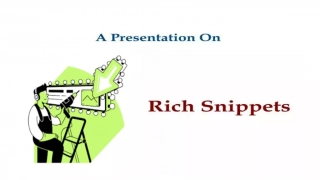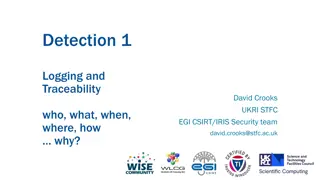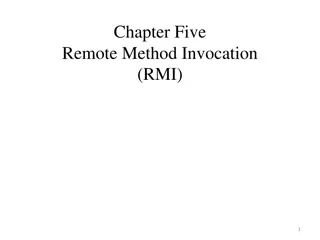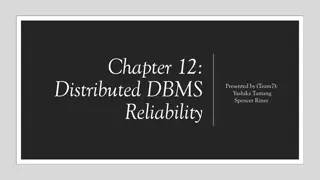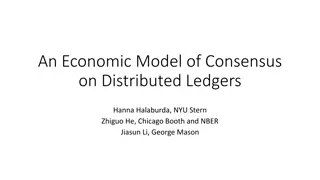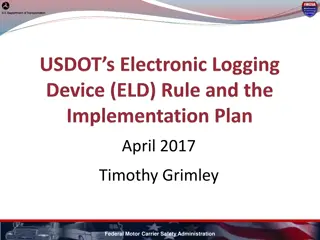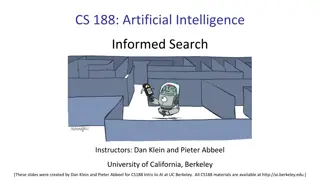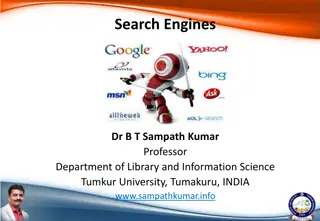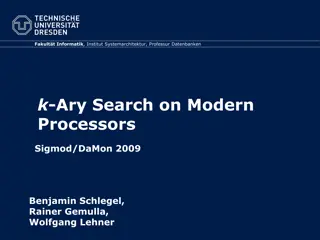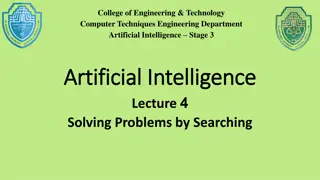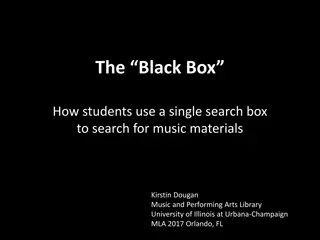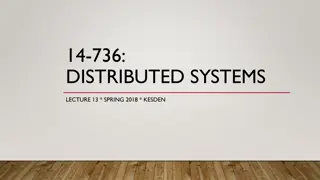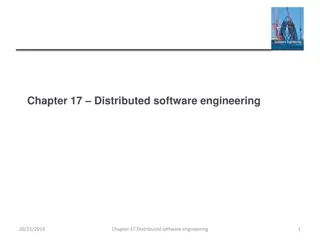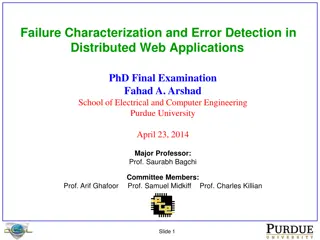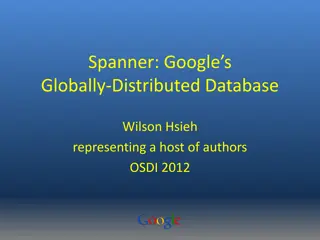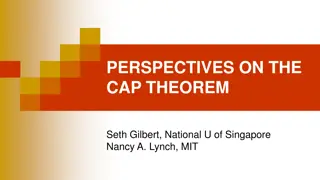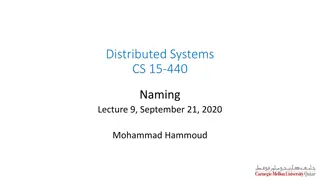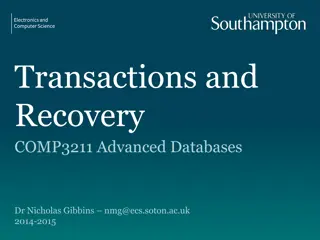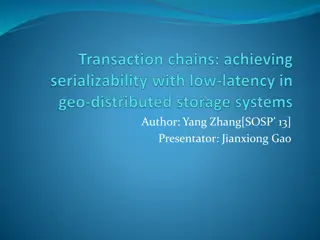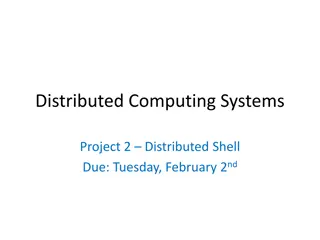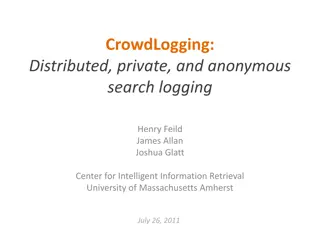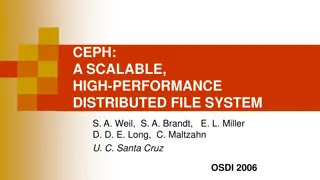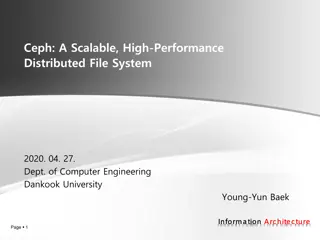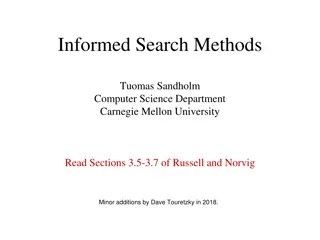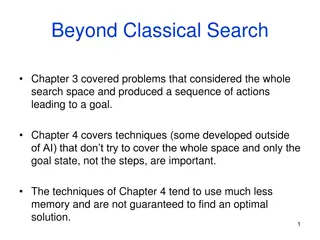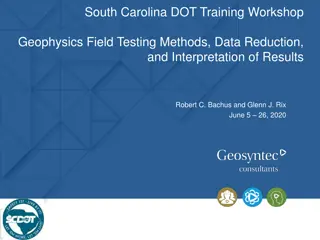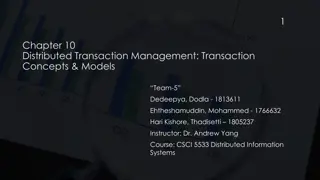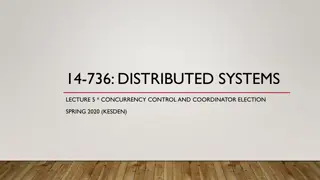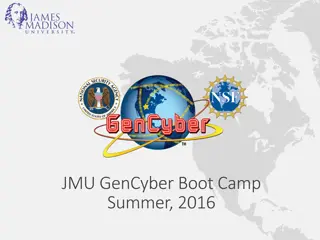Stand Out in Search: The Art of Rich Snippet Optimization
\nRich snippets are enhanced search results that provide additional information beyond traditional titles and meta descriptions. Achieved through structured data markup, such as JSON-LD or Microdata, rich snippets offer a more detailed preview of webpage content in search engine results. Examples in
1 views • 8 slides
PayGuard User Guide - Logging in and Using the Phone Keypad
The PayGuard user guide provides step-by-step instructions on logging into the INovation platform and using the phone keypad to link phone calls with PayGuard for processing payments. Users are guided on how to select processes, enter Agent PIN, and verify linked calls, ensuring a seamless payment e
1 views • 20 slides
Importance of Logging and Traceability in Cybersecurity
Logging and traceability play a crucial role in cybersecurity, providing essential insights into system activities and aiding in incident response. This article explores the significance of logging, examples of log analysis, and the types of logs related to host and service activities.
1 views • 61 slides
Overview of Distributed Systems: Characteristics, Classification, Computation, Communication, and Fault Models
Characterizing Distributed Systems: Multiple autonomous computers with CPUs, memory, storage, and I/O paths, interconnected geographically, shared state, global invariants. Classifying Distributed Systems: Based on synchrony, communication medium, fault models like crash and Byzantine failures. Comp
9 views • 126 slides
Understanding Parallel and Distributed Computing Systems
In parallel computing, processing elements collaborate to solve problems, while distributed systems appear as a single coherent system to users, made up of independent computers. Contemporary computing systems like mobile devices, IoT devices, and high-end gaming computers incorporate parallel and d
1 views • 11 slides
Understanding Remote Method Invocation (RMI) in Distributed Systems
A distributed system involves software components on different computers communicating through message passing to achieve common goals. Organized with middleware like RMI, it allows for interactions across heterogeneous networks. RMI facilitates building distributed Java systems by enabling method i
1 views • 47 slides
Distributed DBMS Reliability Concepts and Measures
Distributed DBMS reliability is crucial for ensuring continuous user request processing despite system failures. This chapter delves into fundamental definitions, fault classifications, and types of faults like hard and soft failures in distributed systems. Understanding reliability concepts helps i
0 views • 58 slides
Understanding Search Procedures and Warrants in Legal Context
Search procedures play a crucial role in law enforcement, allowing authorities to explore, probe, and seek out hidden or suspected items. This comprehensive outline covers the meaning of search, locations where searches are conducted, objects searched for, legal definitions of search of a place, sea
0 views • 11 slides
Economic Models of Consensus on Distributed Ledgers in Blockchain Technology
This study delves into Byzantine Fault Tolerance (BFT) protocols in the realm of distributed ledgers, exploring the complexities of achieving consensus in trusted adversarial environments. The research examines the classic problem in computer science where distributed nodes communicate to reach agre
0 views • 34 slides
Understanding FMCSA's Electronic Logging Device Rule
This content provides a detailed overview of the Electronic Logging Device (ELD) Rule by the Federal Motor Carrier Safety Administration (FMCSA). It covers the major components of the rule, ELD implementation phases, specifications, exemptions, who is required to use an ELD, awareness and transition
3 views • 28 slides
Distributed Algorithms for Leader Election in Anonymous Systems
Distributed algorithms play a crucial role in leader election within anonymous systems where nodes lack unique identifiers. The content discusses the challenges and impossibility results of deterministic leader election in such systems. It explains synchronous and asynchronous distributed algorithms
2 views • 11 slides
Covert Visual Search and Effective Oculomotor Range Constraints
The study delves into whether covert visual search is biologically limited by the Effective Oculomotor Range (EOMR), exploring neuropsychological evidence, eye movement studies, and participant measurements. It investigates the impact on visual search tasks, including color, orientation, and conjunc
1 views • 15 slides
Understanding Informed and Uninformed Search Algorithms in Artificial Intelligence
Delve into the world of search algorithms in Artificial Intelligence with a focus on informed methods like Greedy Search and A* Search, alongside uninformed approaches such as Uniform Cost Search. Explore concepts like search problems, search trees, heuristic functions, and fringe strategies to comp
0 views • 69 slides
How to Search for Classes by Part of Term in MyNCC
Learn how to search for classes by part of term in MyNCC by following a step-by-step guide. After logging in, navigate to the Academic tab, select Add or Drop Classes, choose Class Search, go to Advanced Search, select a part of term, and view relevant class offerings. You can easily add classes by
0 views • 8 slides
Understanding Search Engines and Their Importance
Search engines, such as Google, play a crucial role in retrieving information from the web, providing access to a vast document collection, and helping users find what they need quickly and efficiently. They come in different types like robot-driven and meta search engines, each serving specific pur
1 views • 23 slides
k-Ary Search on Modern Processors
The presentation discusses the importance of searching operations in computer science, focusing on different types of searches such as point queries, nearest-neighbor key queries, and range queries. It explores search algorithms including linear search, hash-based search, tree-based search, and sort
0 views • 18 slides
Solving Problems by Searching in Artificial Intelligence: Uninformed Search Strategies
In the field of Artificial Intelligence, solving problems through searching is essential. Uninformed search strategies, also known as blind search, involve exploring the search space without any additional information beyond what is provided in the problem definition. Techniques such as Breadth-Firs
1 views • 26 slides
Understanding Search Patterns for Music Materials in Libraries
Exploring how students search for music materials using a single search box, this study investigates if the nature of music materials influences search patterns compared to other subjects. It also evaluates the effectiveness of tools like federated search and discovery layers in facilitating searche
0 views • 25 slides
Heuristic Search Algorithms in Artificial Intelligence
In the realm of artificial intelligence, heuristic search algorithms play a pivotal role in efficiently navigating large search spaces to find optimal solutions. By leveraging heuristics, these algorithms can significantly reduce the exploration of the search space and guide agents towards the goal
0 views • 14 slides
Overview of Distributed Systems, RAID, Lustre, MogileFS, and HDFS
Distributed systems encompass a range of technologies aimed at improving storage efficiency and reliability. This includes RAID (Redundant Array of Inexpensive Disks) strategies such as RAID levels, Lustre Linux Cluster for high-performance clusters, MogileFS for fast content delivery, and HDFS (Had
0 views • 23 slides
Distributed Software Engineering Overview
Distributed software engineering plays a crucial role in modern enterprise computing systems where large computer-based systems are distributed over multiple computers for improved performance, fault tolerance, and scalability. This involves resource sharing, openness, concurrency, and fault toleran
0 views • 66 slides
Challenges in Detecting and Characterizing Failures in Distributed Web Applications
The final examination presented by Fahad A. Arshad at Purdue University in 2014 delves into the complexities of failure characterization and error detection in distributed web applications. The presentation highlights the reasons behind failures, such as limited testing and high developer turnover r
0 views • 53 slides
Google Spanner: A Distributed Multiversion Database Overview
Represented at OSDI 2012 by Wilson Hsieh, Google Spanner is a globally distributed database system that offers general-purpose transactions and SQL query support. It features lock-free distributed read transactions, ensuring external consistency of distributed transactions. Spanner enables property
0 views • 27 slides
Understanding the CAP Theorem in Distributed Systems
The CAP Theorem, as discussed by Seth Gilbert and Nancy A. Lynch, highlights the tradeoffs between Consistency, Availability, and Partition Tolerance in distributed systems. It explains how a distributed service cannot provide all three aspects simultaneously, leading to practical compromises and re
0 views • 28 slides
Understanding Distributed Hash Table (DHT) in Distributed Systems
In this lecture, Mohammad Hammoud discusses the concept of Distributed Hash Tables (DHT) in distributed systems, focusing on key aspects such as classes of naming, Chord DHT, node entities, key resolution algorithms, and the key resolution process in Chord. The session covers various components of D
0 views • 35 slides
Advanced Database Transactions and Recovery Concepts
Explore the key concepts of transactions and recovery in advanced databases. Topics include durability, input/output operations, expanded transactions, logging approaches, and log records. Learn about undo logging, redo logging, and undo/redo logging techniques for system crash recovery.
0 views • 36 slides
Distributed Database Management and Transactions Overview
Explore the world of distributed database management and transactions with a focus on topics such as geo-distributed nature, replication, isolation among transactions, transaction recovery, and low-latency maintenance. Understand concepts like serializability, hops, and sequence number vectors in ma
0 views • 17 slides
The Art of Logging: An Exploration with Apache Log4j 2 by Gary Gregory
Delve into the world of logging with Apache Log4j 2 through the insightful exploration presented by Gary Gregory, a Principal Software Engineer at Rocket Software. Discover the importance of logging, key concepts like logging architecture and APIs, and the significance of modern logging frameworks s
0 views • 72 slides
Distributed Computing Systems Project: Distributed Shell Implementation
Explore the concept of a Distributed Shell in the realm of distributed computing systems, where commands can be executed on remote machines with results returned to users. The project involves building a client-server setup for a Distributed Shell, incorporating functionalities like authentication,
0 views • 14 slides
Understanding Depth-First Search in State Space Exploration
Depth-First Search (DFS) is a search strategy employed in state space exploration, where the search algorithm delves deep into a single branch of the search tree before backtracking to explore alternative paths. DFS is efficient for deep search spaces but can get lost in blind alleys if not implemen
0 views • 19 slides
Distributed Search Logging: CrowdLogging vs. Centralized Model
CrowdLogging provides a distributed, private, and anonymous approach to search logging, contrasting with the centralized model that lacks user control and privacy. It offers advantages such as improved sharability and reproducible research results. The drawbacks of the centralized model include lack
0 views • 26 slides
Overview of Ceph Distributed File System
Ceph is a scalable, high-performance distributed file system designed for excellent performance, reliability, and scalability in very large systems. It employs innovative strategies like distributed dynamic metadata management, pseudo-random data distribution, and decoupling data and metadata tasks
0 views • 42 slides
Overview of Ceph: A Scalable Distributed File System
Ceph is a high-performance distributed file system known for its excellent performance, reliability, and scalability. It decouples metadata and data operations, leverages OSD intelligence for complexity distribution, and utilizes adaptive metadata cluster architecture. Ceph ensures the separation of
0 views • 23 slides
Overview of Informed Search Methods in Computer Science
Detailed exploration of informed search methods in computer science, covering key concepts such as heuristics, uninformed vs. informed search strategies, Best-First Search, Greedy Search, Beam Search, and A* Search. Learn about different algorithms and their applications to solve complex problems ef
0 views • 47 slides
Techniques in Beyond Classical Search and Local Search Algorithms
The chapter discusses search problems that consider the entire search space and lead to a sequence of actions towards a goal. Chapter 4 explores techniques, including Hill Climbing, Simulated Annealing, and Genetic Search, focusing solely on the goal state rather than the entire space. These methods
0 views • 51 slides
Geophysics Field Testing Workshop: Methods and Interpretation
South Carolina DOT Training Workshop on geophysics field testing methods, data reduction, and interpretation of results by Robert C. Bachus and Glenn J. Rix. The workshop covers suspension logging, borehole geophysical logging, geotechnical testing, and geophysical service companies such as Schlumbe
0 views • 11 slides
Distributed Transaction Management in CSCI 5533 Course
Exploring transaction concepts and models in distributed systems, Team 5 comprising Dedeepya, Dodla, Ehtheshamuddin, and Hari Kishore under the guidance of Dr. Andrew Yang delve into the intricacies of distributed transaction management in CSCI 5533 Distributed Information Systems.
0 views • 56 slides
Concurrency Control and Coordinator Election in Distributed Systems
This content delves into the key concepts of concurrency control and coordinator election in distributed systems. It covers classical concurrency control mechanisms like Semaphores, Mutexes, and Monitors, and explores the challenges and goals of distributed mutual exclusion. Various approaches such
0 views • 48 slides
Quantum Distributed Proofs for Replicated Data
This research explores Quantum Distributed Computing protocols for tasks like leader election, Byzantine agreement, and more. It introduces Quantum dMA protocols for verifying equality of replicated data on a network without shared randomness. The study discusses the need for efficient protocols wit
0 views • 28 slides
Importance of Logging and Auditing in Cybersecurity
Discussing the significance of logging and auditing in cybersecurity, emphasizing the need for both a priori and a posteriori techniques to prevent security violations. Logging helps record events for system analysis, while auditing involves analyzing log records to provide understandable system inf
0 views • 32 slides
